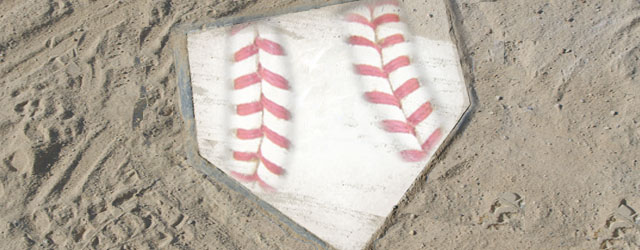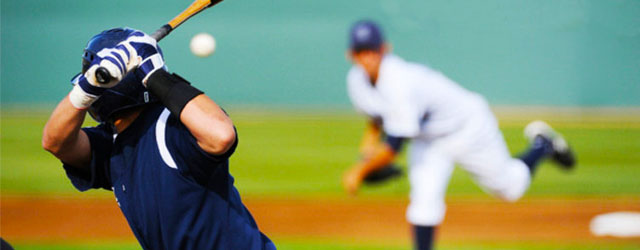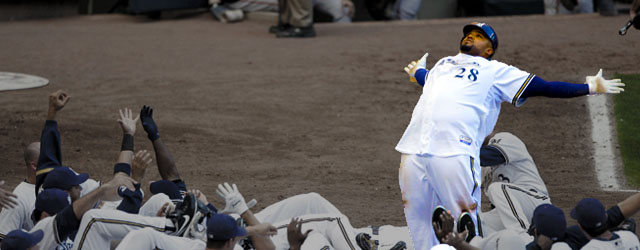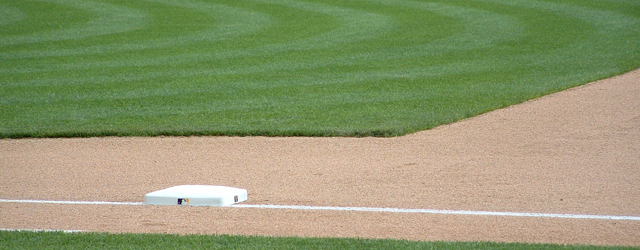
Strike one: the best pitch in baseball. Not a 95 MPH fastball. Not a curveball that drops off the table. Strike one!
Throwing strikes is the name of the game. No pitcher will argue against the benefit of getting ahead in the count by attacking the strike zone. And no coach would be upset if his pitching staff was constantly pitching ahead in the count. So, why is strike one and getting ahead in the count so important? It’s a shame you have to ask, but let’s break it down for you.
The Mentality of the Pitcher
Imagine you are pitching. Your standing on the mound in the second inning with one out and the score is 0-0. You get your sign from the catcher, begin your windup, and deliver the pitch for strike one. With the count 0-1 in your favor, your confidence increases and you have your pick of pitches to deliver next. Fastball, breaking ball, change-up – the choice is yours. You know you have the advantage, and your confidence in attacking the strike zone increases. You are in control, and you dictate the pace and flow of the at-bat.
Now, imagine that your first pitch was a ball. Count, 1-0. It’s only one pitch, but the typical pitcher becomes a little more tight and opts for his fastball the next pitch. After all, you throw your fastball with the most accuracy, and the last thing you want is for the count to go to 2-0 in the hitter’s favor. You know the hitter is looking fastball now, so you try to paint the corner and nibble with your next pitch. Whether you are aware of it or not, your confidence has decreased some and you are less likely to attack the strike zone with the same fervor as you would if the count was 0-1.
The Mentality of the Hitter
Count, 0-1. Most young hitters will begin thinking that they are already in the hole. In their mind, they are already losing the battle. This has a huge impact on their confidence. The hitter becomes a little more tight and tentative because he cannot be sure of what pitch is coming next. This is especially true if the guy on the mound can throw more than his fastball for strikes. Advantage: Pitcher.
Ball one. The batter knows that 1-0 is a hitter’s count and has a pretty good idea of what’s coming next. The hitter knows what the pitcher knows – he cannot fall behind 2-0, so he has to throw a strike here. Whether he knows for certain that the next pitch is a fastball or not is of no matter. What does matter is that his confidence is up a notch. And when it comes to success on the diamond, confidence plays a huge role. Advantage: Hitter.
The Statistics
We can speak of hypothetical situations all we want and the psychological effect on the pitcher and hitter, but let’s break down the actual statistics. No sport is as enamored with statistics as much as baseball. Baseball people count everything. Everything. So, it’s no surprise that there have been numerous studies on how well hitters perform with certain counts. One such study was documented in a two-part series by Craig Burley back in 2004. In his study, he dissected statistics from the 2003 MLB season. Burley found that just 7.3% of pitches thrown for first pitch strikes resulted in a base hit.
“That’s just shocking. 92.7% of the time, if you throw a strike to the opposing hitter, you get either a 0-1 count or an out,” said Burley.
In a game where success is measured by who fails the least, 92.7% is astronomical in terms of success rate. Think about it, a ballplayer is considered a good hitter if he succeeds just 3 out of 10 times. That’s only 30% of the time. That’s an F on any test I ever took in school, but considered an A on the baseball field. So, seeing a number like 92.7% should just jump out at you. And that’s at the Major League level. Imagine facing less-talented hitters at the college or high school level. If you are a youth pitcher and can grasp the magnitude of this stat, then you will be far ahead of your peers.
Burley further notes that once the count reaches 0-1, batters hit only .239 the rest of an at-bat. (The Major League average for batting average in 2003 was .268.) Still, an amazing advantage for the pitcher.
Coaching Pitchers
Though coaches are aware of the advantage of getting ahead in the count, they need to express and reinforce this important fact to their pitchers. Establishing the count in the pitcher’s favor gives him a huge advantage. Yes, hitters will still get base hits, but staying ahead in the count makes it significantly more difficult for the hitter to do so. The pitcher must make a commitment to throw strikes early in the count, trust his stuff, and know the statistics are on his side if he throws strike one.
“0-0 is the predominant count in baseball. The first strike is the soul of every pitcher’s success, and pitchers who don’t throw first-pitch strikes get killed. Consistently, even the most hittable pitchers in the majors give up base hits on fewer than 10% of their first-pitch strikes.” –Craig Burley
References:
Burley, Craig. “The Importance of Strike One (Part One).” The Hardball Times. Web.
Burley, Craig. “The Importance Of Strike One (and Two, and Three…), Part 2.” The Hardball Times. Web.




